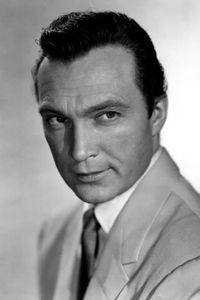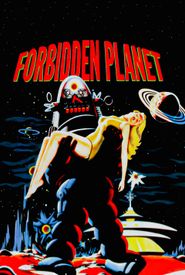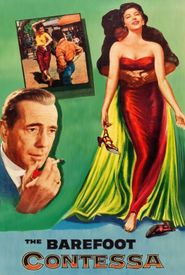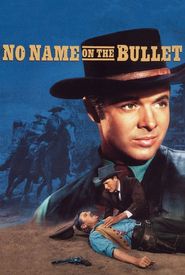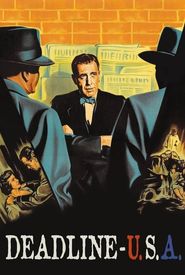Warren Albert Stevens, a trailblazing American thespian, left an indelible mark on the world of entertainment, with a career that effortlessly traversed the realms of stage, screen, and television, spanning a remarkable several decades.
As a visionary co-founder of The Actor's Studio in New York, Stevens' immense talent and dedication soon resonated with audiences, culminating in a triumphant Broadway debut in the late 1940s.
This milestone achievement served as a springboard for Stevens, ultimately securing a coveted Hollywood contract with the prestigious 20th Century Fox, a testament to his unwavering commitment to his craft.
The illustrious career of the esteemed individual began with a notable Broadway debut in the production of The Life of Galileo, marking the commencement of a long and storied journey in the world of theater. Shortly thereafter, he made his cinematic debut in the 1951 film The Frogmen, setting the stage for a prolific and varied filmography that would span many years to come.
As a young and ambitious studio contract player, Stevens found himself bound by the constraints of his contractual obligations, limiting his creative input and agency. Nevertheless, he persevered, appearing in a wide range of films that showcased his versatility and adaptability as an actor. These early endeavors included the critically acclaimed Phone Call from a Stranger, the heartwarming Wait Till the Sun Shines, the endearing Nellie, and the thrilling Gorilla at Large, each offering a unique and memorable experience for audiences everywhere.
Stevens' most notable cinematic endeavors consisted of a diverse array of roles, with one of the most memorable being his portrayal of the ill-fated character "Doc" Ostrow in the groundbreaking science fiction film Forbidden Planet, which shared the spotlight with none other than the iconic Humphrey Bogart in the critically acclaimed drama The Barefoot Contessa, as well as Intent to Kill, a thrilling cinematic experience that showcased his remarkable acting prowess.
Notwithstanding occasional forays into high-profile cinematic productions, Stevens faced a persistent challenge in securing a permanent foothold within the rarefied realm of A-list films, ultimately opting to cultivate a thriving career in television as a versatile and dependable dramatic actor, consistently delivering strong performances and earning a reputation as a reliable and talented journeyman thespian.
He shared the spotlight as the charismatic and fearless Lt. William Storm in the action-packed prime-time adventure series, Tales of the 77th Bengal Lancers, which transported audiences to the exotic and thrilling world of India, where he brought to life the persona of a brave and daring military officer.
Additionally, his impressive vocal talents were showcased as he lent his voice to the character of John Bracken in the inaugural season of the critically acclaimed drama series, Bracken's World, a show that delved into the fascinating and complex world of television production, and featured a talented ensemble cast that included a wide range of characters, each with their own unique stories and struggles.
Stevens, a talented actor, took on the character of Elliot Carson, a pivotal role in the popular daytime television series Return to Peyton Place, which enjoyed a successful two-year run, captivating audiences with its engaging storylines and memorable characters.
Noted television personality, Stevens, left an indelible mark on the small screen, boasting an impressive repertoire of over 150 prime-time appearances spanning the 1950s to the early 1980s, with a diverse range of credits including:
Carole Landis
(born Frances Lillian Mary Ridste; November 10, 1919 – July 5, 1948) was an American actress and singer who was a popular pin-up girl and sex symbol of the 1940s.
Notable anthology series that thrived during the Golden Age of television, characterized by their impressive production quality and captivating storytelling, include Actors Studio, Campbell Playhouse, The Web, Justice, Philco Television Playhouse, Studio One, The United States Steel Hour, Bob Hope Presents the Chrysler Theatre, and Route 66, all of which showcased a diverse range of dramatic and often provocative content that captivated audiences nationwide.
Noted actor, with a diverse range of roles under his belt, made appearances in numerous mystery and detective series throughout his illustrious career. His impressive repertoire includes starring roles in shows such as Hawaiian Eye, a popular television series that aired in the late 1950s and early 1960s, where he played a key character. He also made guest appearances in other notable series, including Perry Mason, a classic whodunit show that aired from 1957 to 1966, and The Untouchables, a critically acclaimed series that aired from 1959 to 1963. His acting talents were further showcased in Climax!, a live television anthology series that aired from 1954 to 1958, where he starred in several episodes. He also appeared in Checkmate, a mystery series that aired from 1960 to 1962, and Surfside 6, a detective series that aired from 1960 to 1962. His impressive list of credits also includes 77 Sunset Strip, a popular detective series that aired from 1958 to 1964, and Behind Closed Doors, a mystery series that aired from 1958 to 1960. He continued to hone his acting skills by appearing in I Spy, a popular spy series that aired from 1965 to 1968, and The Man from U.N.C.L.E., a classic spy series that aired from 1965 to 1968. His versatility as an actor was showcased in Ironside, a crime drama series that aired from 1967 to 1975, where he played a key character. He also appeared in The Mod Squad, a groundbreaking police procedural series that aired from 1968 to 1973, and Mannix, a detective series that aired from 1967 to 1975. His impressive list of credits also includes Cannon, a detective series that aired from 1971 to 1976, Griff, a detective series that aired from 1973 to 1975, and Mission: Impossible, a popular spy series that aired from 1966 to 1973.
Stevens' illustrious acting career was further bolstered by his extensive repertoire of Westerns, which included notable roles in the iconic television series Laramie, where he showcased his versatility as a skilled thespian. His impressive array of Western credits also extended to The Rebel, The Man Called Shenandoah, Wagon Train, The Alaskans, Gunsmoke, Bonanza, Daniel Boone, The Virginian, Rawhide, and Have Gun, Will Travel, solidifying his status as a master of the genre.
Noted television personality, Stevens, made a significant impact on the small screen by gracing the airwaves with his presence in a variety of television anthologies, showcasing his versatility as a performer.
In the year 1970, a notable television appearance was made by the individual in question, where he took on the role of Paul Carson on a popular western series that underwent a rebranding, being previously known as "The Virginian", and was subsequently renamed "The Men From Shiloh". This particular episode, titled "Hannah", showcased his acting talents to a wide audience.
Stevens' enduring and significant connection with the renowned actor Richard Boone, a bond that spanned a considerable period of time, ultimately led to a recurring role on The Richard Boone Show, a highly acclaimed and prestigious NBC anthology series that aired during the 1963-1964 television season, garnering widespread critical acclaim and numerous awards and nominations.
Richard Boone was a talented American actor, director, and producer, best known for his distinctive voice and versatility in playing a wide range of roles. Born on June 18, 1917, in Louisville, Kentucky, Boone began his acting career on stage, later transitioning to television and film.
Boone's extensive body of work includes iconic roles in classic Westerns such as "Have Gun – Will Travel" and "The Life and Legend of Wyatt Earp," as well as appearances in notable films like "The Big Circus" and "Mister Roberts." His impressive career spanned over five decades, earning him numerous awards and nominations, including multiple Emmy Awards.
Stevens' association with Boone not only resulted in a recurring role on The Richard Boone Show but also provided an opportunity to work alongside a highly respected and accomplished actor, further enriching Stevens' own professional experience.
As the years went by, the once-familiar face of James Stevens, a renowned actor, became a relatively rare sight on television screens. His appearances, although less frequent, still managed to leave a lasting impact on audiences. In 2006, Stevens made a notable guest appearance on the hit medical drama ER in March, captivating viewers with his exceptional acting skills. The following year, 2007, saw Stevens take on two more roles, further cementing his reputation as a talented and versatile actor.
